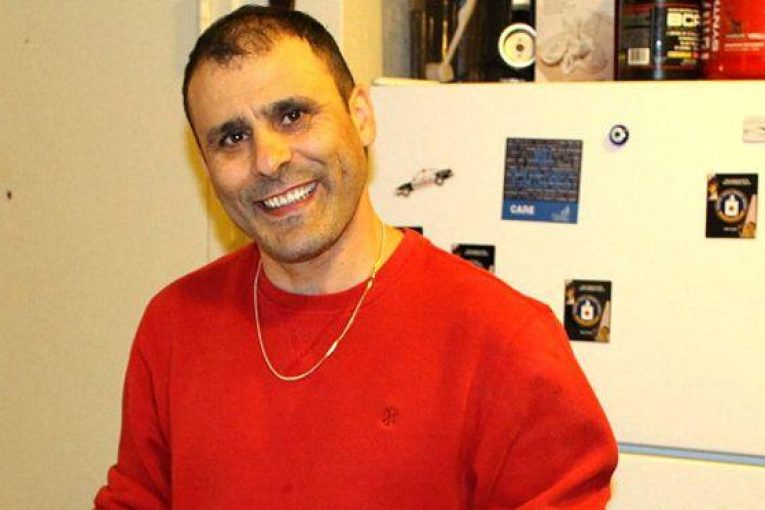Features

March 7 marked the 20th day of jailed Iranian-American Reza “Robin” Shahini’s hunger strike. Shahini was arrested on July 11, 2016 and taken to Amir Abad Prison in the northeastern city of Gorgan. He went on hunger strike on February 15 to protest against his ill treatment by prison officials and against the prison sentence that he believes is unjust.
Reza Shahini has been a US resident for the last 16 years. During this time, he visited Iran several times. At the time of his arrest, he was visiting his mother in Gorgan, the provincial capital of Golestan province, when Revolutionary Guards Intelligence Unit agents arrested him as he was on his way to a restaurant with friends. The lower Revolutionary Court sentenced him to 18 years in prison for “collaborating with hostile governments by giving an interview to the Voice of America”, “propaganda against the regime” and “insulting the Supreme Leader.”
Article 134 of the Iranian Penal Code states that: “In the case of multiplicity of offenses, if there are mitigating factors, the court can reduce the punishment of the offender…down to half.” Based on this, the dual national must serve at least nine years before he is eligible for parole.
Facebook as Criminal Evidence
Shahini, who has an undergraduate degree in international security and conflict resolution from San Diego State University in California, has denied all charges against him. In an interview with Vice News, Shahini said that the judge used his Facebook page as evidence against him, in particular his posts following the aftermath of the disputed 2009 presidential election.
Shahini’s family met with him at the prison on March 1. They pleaded with him to end his hunger strike, but he refused and told them that for him to spend even one day in prison was wrong and unjust. “After he went on hunger strike my family had a difficult time getting a permit to visit him,” Reza’s sister Fatemeh Shahini told IranWire. “Last Wednesday, my mother and my sister visited him in prison and asked him to end his hunger strike but he refused.”
After he went on hunger strike, prison officials shaved his head, took away his notebook and sent him into solitary confinement. His family is worried about his health because he suffers from asthma. According to Fatemeh Shahini, her brother has not been allowed to contact the family by phone because prison officials consider his hunger strike an illegal act, which they say makes him ineligible for phone privileges.
“Does my brother deserves so many years in prison and the maximum sentence for publishing a few pictures or writing things in his personal blogs?” Fatemeh Shahini said. “Why do my country’s authorities accuse him of espionage or collaboration with hostile governments just for a non-political interview as an ordinary citizen? They justify it by saying that Voice of America is part of a hostile government and consequently anybody who talks to them will be charged with espionage.”
She also said Shahini should be given access to pen and paper. “Having a notebook in an Iranian prison is considered a crime,” she said, “but nowadays they teach Martin Luther King’s notes from prison at American universities. Wasn’t stripping him of his freedom and his captivity behind bars for unjust reasons enough? Now we have to hear dispiriting news about him every day?”
According to his family, Reza Shahini has lost a considerable amount of weight since he started his hunger strike and has been taken to the prison’s clinic more than once.
The Legal Runaround
“The verdict against my brother was issued three months ago,” Fatemeh Shahini said. “He had 20 days to appeal. Gorgan’s appeals court judge announced that his case was not within his jurisdiction and that he was referring the case to the supreme court. They sent the case to a branch of the court in Qom. It is complicated because my brother is a resident of Gorgan but his case is in Qom. Now his lawyer has to travel to Qom frequently, but they have not allowed him to study his case file. He has gone there several times but has not succeeded in meeting the judge.”
According to another informed source who spoke to IranWire on the condition of anonymity, Shahini’s lawyer is utterly surprised that there is absolutely no evidence to support the charges of espionage or collaboration with hostile governments, and says it not at all clear why he has been sentenced to 18 years in prison. He says Shahini in currently held in the isolation ward of the prison, has been sent to the prison clinic multiple times and is suffering from kidney problems due to his hunger strike.
On March 6, Voice of America received and published a letter from Reza Shahini [Persian link]. In the letter, Shahini says he traveled to Iran to visit his family because he was under the impression that the Iranian government had changed its policy toward nationals visiting from abroad. He reiterated that he was innocent of the charges. He mentioned that he was suffering from asthma and pleaded with the Iranian people not to leave him alone in the prison.
Several dual nationals are currently in prison in Iran, including father and son Iranian-Americans Baquer and Siamak Namazi, and Iranian-British nationals Nazanin Zaghari-Ratcliffe and Kamal Foroughi. US resident Nizar Zakka has also been detained since September 2015.
On March 5, reports emerged that Zaghari-Ratcliffe had collapsed while waiting for medical treatment. Two days before this, Babak Namazi said Donald Trump’s administration had to take greater steps to release his brother Siamak and his father Baquer. Just two weeks before his election as president, Trump tweeted that such situations would not be tolerated when he became president.